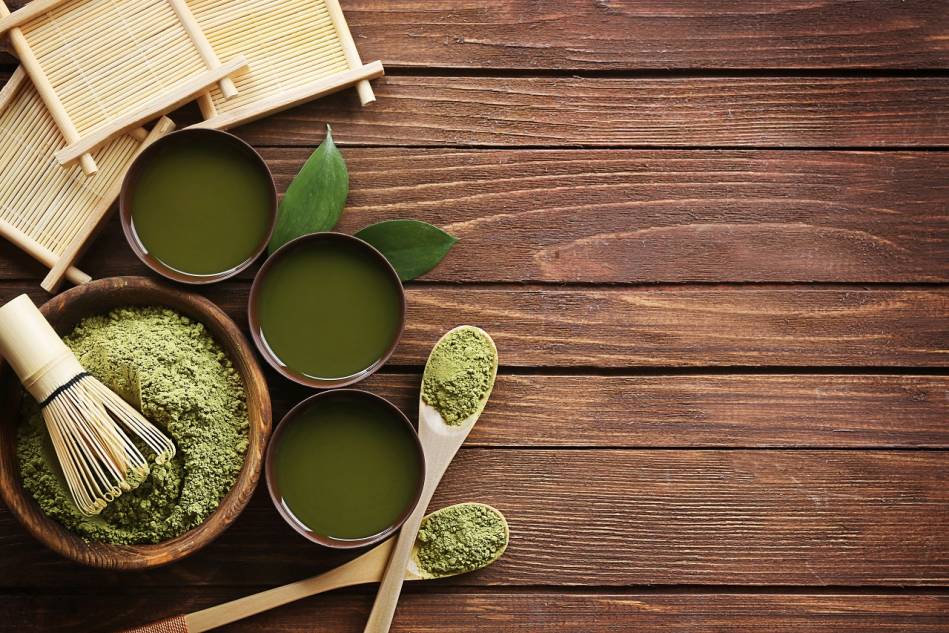
Spirulina: benefits in health and body shaping

Spirulina is a blue-green microalgae, a type of cyanobacteria that appeared on Earth 3.5 billion years ago, which can be found on every continent, often near volcanoes. It is widely popular and called a “super food” because its nutrient and antioxidant content is more potent than any other food, with benefits such as improving your levels of blood lipids, suppress oxidation, reduce blood pressure and lower blood sugar.
What is spirulina algae?
The spirulina is a sun-dried alga that grows naturally in mineral-rich alkaline lakes, which gives it a special energy and a wonderful taste. During the 1974 World Food Conference, the United Nations referred to these algae as “the best food for the future”.
It started as a food source for the Aztecs and other Mesoamericans until the 16th century and was found in abundance at Lake Texcoco by French researchers in the 1960s. It has been since then considered a super food because this nutritional powerhouse is rich in vitamins, minerals, protein, essential fatty acids, and more.

Health benefits of spirulina
Different studies have shown that the nutrients in Spirulina could be of great help when it comes to health problems like attention deficit, hyperactivity, cancer, fatigue, high cholesterol, viral infections, immune system problems and many more. Here are some of the highlighted benefits of this super food.
1. Spirulina and allergy
Spirulina supplements are very effective against allergic rhinitis, reducing various symptoms as studies show that 2 grams per day dramatically reduced symptoms like nasal discharge, sneezing, nasal congestion and itching; commonly triggered by environmental allergens, such as pollen, animal hair or even wheat dust.
2. Detoxify with Spirulina
This alga helps to detoxify the cells and body from heavy metals and other toxins. With a powerful chelating agent, Spirulina reaches deep into bodily tissues and takes out toxins like mercury, radiation, arsenic, cadmium, pesticides, synthetic food chemicals, and environmental carcinogens, leaving them up for excretion.
The WHO (World Health Organization) has noted that in general, but specially in waterways, high concentrations of arsenic can be found all over the globe. And studies have shown that people taking Spirulina, together with a Zinc supplement, have a 50% decline in the presence of toxins, leaning to the thought that this combination can displace the metal and then be later excreted by the body.
3. Spirulina for cardiovascular health
It has been studied that Spirulina can lower triglycerides and “bad” LDL cholesterol, and may simultaneously raise “good” HDL cholesterol. This is great news taking into account that heart deceases are the world’s leading cause of death.
Supplementing with Spirulina daily effectively reduces blood serum levels of cholesterol, which means cholesterol is being deposited throughout the body where it needs to be rather than in arterial walls where it can cause cardiovascular problems.
Spirulina can also increase the production of nitric oxide, a signaling molecule that helps the blood vessels relax and dilate, which may help to lower blood pressure levels. High blood pressure is a serious cause of many killer diseases. These include heart attacks, strokes and chronic kidney disease.
Next to Spirulina, it is also recommended to take Omega 3 as it contributes to the reduction of the liver’s fat content and it has a positive effect dealing with other risk factors for cardiac deceases.
4. Spirulina for cell renewal
Rich in both phycocyanin and chlorophyll, Spirulina is also a powerful blood purifier as these two important nutrients, not only rejuvenate the existing blood supply, but also promote blood cell growth. Furthermore, there is a very close similarity between the Chlorophyll present in this alga and hemoglobin, the molecule responsible for cleansing the blood and transporting oxygen to cells.
Spirulina stimulates the production of various stem cells including red blood cells, which help to supply oxygen while keeping the blood clean.
Moreover, cell oxidation can cause damage to tissues and arteries while increasing risk for cancers and vascular diseases. Finding a way to allow the body to protect itself from this process is crucial in disease prevention, which is where Spirulina comes in handy.
5. Spirulina for beautiful skin, hair, nails
It is believed that the nutrients in Spirulina have great benefits when it comes, not only to health, but to beauty; as it is rich in proteins, vitamins, minerals, fatty and amino acids which benefit skin and hair.
Spirulina makes skin look toned, youthful and vital, treats flabby skin by eliminating the body’s metabolic waste products, is effective in treating dark eye bags and dry eye symptoms, slows down the ageing of skin cells and facilitates faster cell turnover that helps skin heal faster, helps to speed up hair growth, reduces hair loss, helps facilitate hair renewal, reduces dandruff and makes hair glossy and stronger.

Benefits of Spirulina in body shaping
NASA has recently conducted studies that concluded the potential of this alga as food for space travel, as they found that 1 kg of Spirulina had the same nutrients found in about 1,000 kg of assorted vegetables.
Additionally, when it comes to fitness and body conditioning, spirulina can help to lose weight, gain muscles, stay fit and get every micronutrients you need. It is also low on fat and calories.
1. High protein content
Spirulina boasts a 65-70% protein content, of which 95% is digestible, so in one tablespoon (approx. 7g), there are 4g of protein. This means the protein content in Spirulina is higher than meats and the most common protein sources recommended in the fitness industry. The quality of the protein is considered excellent, comparable to eggs, and it is a complete protein, meaning it contains all the essential amino acids that we need.
For vegans and vegetarians, it is a richer source of protein than most vegetables. And for people in a weight-loss journey, not only can supplementing with Spirulina help you shed the extra pounds, but it may also assist in the growth and development of lean muscle mass, particularly because of its extremely high ratio of bioavailable protein.
2. Rich in amino acids
Spirulina contains all eight essential amino acids and 10 other non-essential amino acids. Essential amino-acids, as the name implies, are indispensable for the human body since it either cannot produce them at all, or it can produce them only in quantities that are insufficient, which means they should be supplied from external sources in your diet and Spirulina comes in as a great alternative for it.
3. Rich in essential fatty acids
Today, the typical modern diet consists of 14 to 25 times more Omega 6 than Omega 3. Researchers believe that this imbalance of Omega 3:6 is causing an inflammatory response in the body, and inflammation is a root cause of numerous diseases and disorders.
The lipid content of Spirulina is 8%. A tablespoon (7 grams) of Spirulina provides a small amount of fat, around 1 gram, including both omega-6 and omega-3 fatty acids in a ratio of about 1.5:1. Besides this, it gives 3 times more Gamma Linolenic Acid (GLA) than Evening Primrose Oil (EPO). GLA has reportedly shown to be effective in strengthening the body’s immune system. It also contains other fatty acids such as alpha-linolenic acid, linoleic acid, stearidonic acid, eicosapentaenoic acid (EPA), docosahexaenoic acid (DHA), and arachidonic acid.
4. The benefits of micronutrients in Spirulina
A single tablespoon (7 grams) of dried Spirulina powder contains:
- Vitamin B1 (thiamine): 11% of the RDA
- Vitamin B2 (riboflavin): 15% of the RDA
- Vitamin B3 (niacin): 4% of the RDA
- Copper: 21% of the RDA
- Iron: 11% of the RDA
- It also contains decent amounts of magnesium, potassium and manganese and small amounts of almost every other nutrient that you need.
To name a few, besides the different benefits mentioned above, some of the additional benefits of the nutrients present in Spirulina are retaining and restoring good digestion, supporting the growth of healthy bacteria in your stomach, boosting the absorption of vital minerals, maintaining brain function, reducing the risk of cancer initiation and boosting your immune system destroying bacteria and viruses. If you were still wondering why this alga is called a super food, now you know the answer.
Who would you recommend Spirulina for?
Spirulina is recommended for people with high cardiovascular risks, people with type 2 diabetes, people who have reduced or excluded animal proteins from their diet (flexitarians, vegetarians, vegans), people on a hypocaloric diet, malnourished people, anemic people or adolescents. It is also recommended to people with digestion problems or high cholesterol.
But, truth is, Spirulina is recommended for everyone. From people who simply want to do a detox and cleanse their body, to people who want to give their body an extra boost in nutrients and all the benefits that come along with this food.
Daily usage of spirulina
Spirulina can be taken all year long. However, if you would like a concentrated intake over a shorter period, treatments of 1 to 3 months are also possible.
It should ideally be taken in the morning and accompanied by a source of Vitamin C (such as fresh fruit juice), which Spirulina does not contain and will augment the algae’s own benefits. Tablets can be crushed and mixed in with your recipes but should not be heated or cooked.